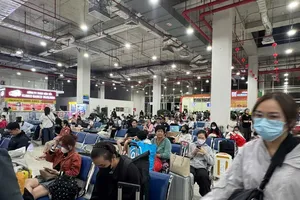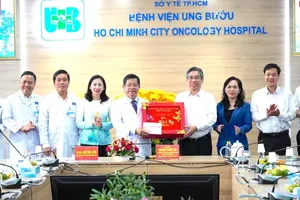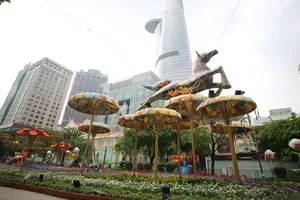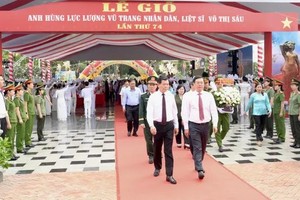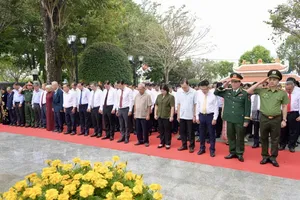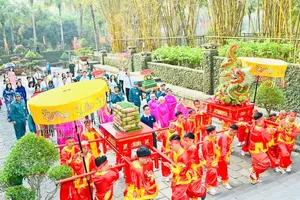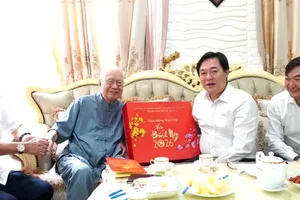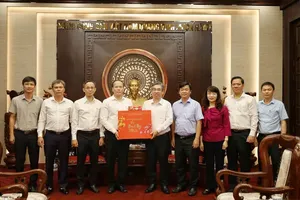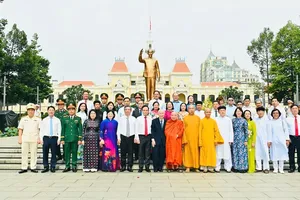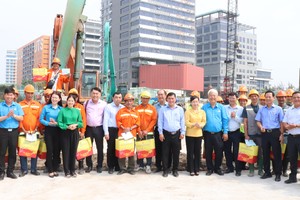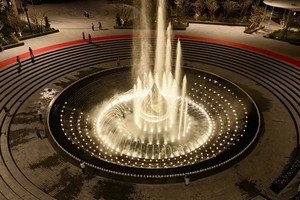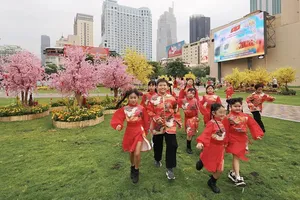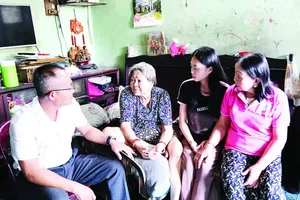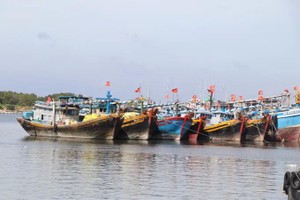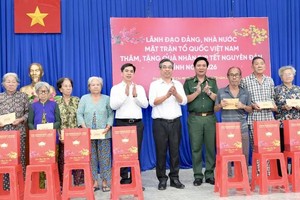Developing waste treatment facilities using incineration and energy recovery is recognized as an environmentally sustainable approach. Yet, in Ho Chi Minh City, such efforts have been hampered by legal hurdles and investment challenges causing significant delays in project implementation.
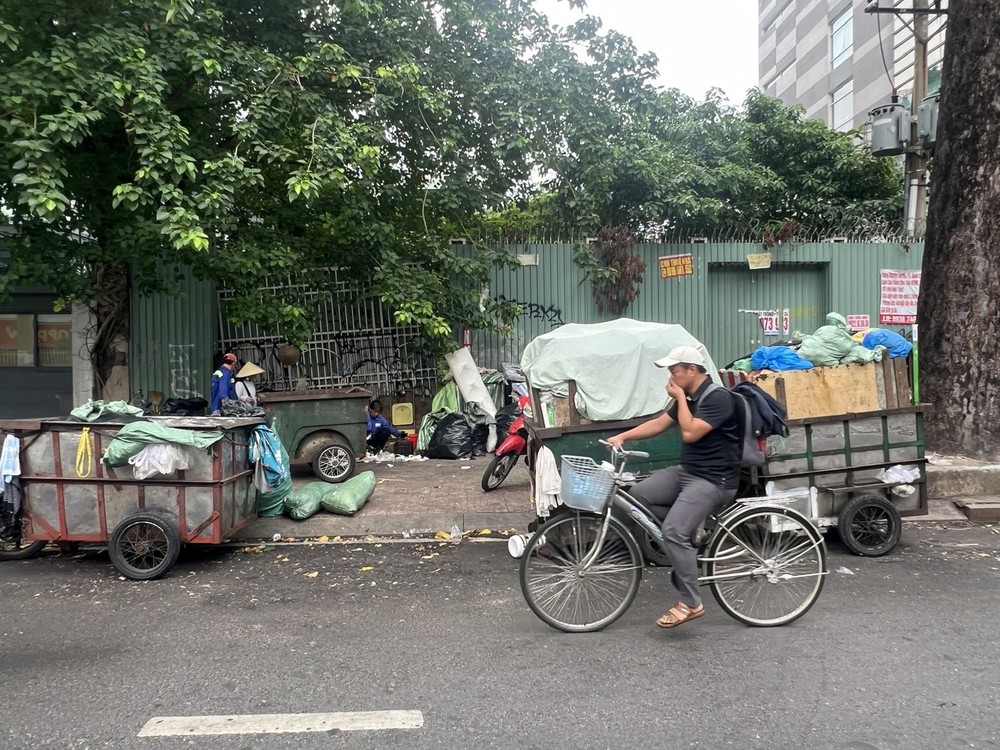
Bamboo Capital Group started construction of Tam Sinh Nghia Waste-to-Energy Incineration Plant on July 20, 2024 which is expected to complete phase 1 by the end of 2025, with a total investment of about VND6,400 billion. This has a waste incineration capacity of 2,000-2,600 tons a day, and a power generation capacity of 60MW a day.
At that time, this project was the first solid waste treatment project in Ho Chi Minh City to be implemented under the National Assembly's Resolution 98 on piloting specific mechanisms and policies, contributing to solving the environmental sanitation problem in Ho Chi Minh City.
After one year of project implementation, Director Nguyen Anh Khoa of the Tam Sinh Nghia Waste-to-Energy Plant project said that the plant is currently constructing the foundation and has not yet been able to speed up the progress.
The company has submitted a request to the Ho Chi Minh City authorities for an extension to complete the project by the end of 2026. It also proposed that the municipal People’s Committee adjust the 1/2,000 scale zoning plan of the solid waste treatment plant, following the city’s approved master plan for 2021–2030 with a vision to 2050.
Previously, the detailed 1/2,000 scale construction plan for the Northwest Solid Waste Treatment Complex in Cu Chi was approved under Decision No. 5875. According to that plan, the land designated for the waste-to-energy plant is currently zoned for fertilizer production.
Although the municipal People’s Committee has approved the task of adjusting the zoning plan which includes updates for waste-to-energy developments, it has not yet approved the revised master plan for the complex. Once this planning adjustment is finalized, the company intends to apply for a construction permit for the next phase.
Vietstar Joint Stock Company's waste-to-energy plant, a pivotal project for Ho Chi Minh City's sustainable waste management, has experienced significant delays since its initial groundbreaking in August 2019. Despite an ambitious original timeline, the project is now targeting completion by 2027, with the company citing stalled investment procedures as the primary cause.
Vietstar Solid Waste Treatment Plant in the Northwest Solid Waste Treatment Complex spans 30 hectares. Its initial plan involved a waste-to-energy incineration system with imported modern technology. The project aims for a 2,000 tons/day capacity in Phase 1, which is originally slated for completion by late 2020, and an additional 2,000 tons/day in Phase 2, which will be completed by 2021 as per the plan.
After a period of inactivity, the project held a second groundbreaking ceremony in March of this year, rebranded as VietStar Integrated Domestic Solid Waste Treatment Plant. The updated plan outlines a 2,000 tons a day capacity, utilizing integrated German technology for compost classification and production, combined with waste incineration for electricity generation. The revised construction timeline is 17 months. This project marks the second such plant in Ho Chi Minh City, aligning with the objectives of Resolution 98.
In a recent discussion with SGGP reporters, General Director Ngo Nhu Hung Viet of VietStar Joint Stock Company, affirmed the plant is now progressing on schedule towards its new 2027 completion target. He acknowledged that while equipment was prepared in advance, investment procedures caused the previously unforeseen delays.
So far, five units that have signed contracts to provide domestic solid waste treatment services with the city include Vietstar Joint Stock Company, Tam Sinh Nghia Development Investment Joint Stock Company, Vietnam Waste Treatment Company Limited, Tasco Joint Stock Company and City Urban Environment Company Limited. Of which, only two have been granted construction permits for the project to convert waste incineration technology to electricity generation and have started construction as mentioned above.
One of the most prolonged projects in the former Ba Ria–Vung Tau Province is Tan Thanh Waste Treatment Plant, developed by Bao Ngoc Green Environment Joint Stock Company. Initially planned to be built in Phu My 3 Industrial Park and slated to begin operations in September 2003, the project was forced to relocate due to zoning regulations that designated the park exclusively for specialized industries.
In response, the local authorities approved a policy to move the plant to Toc Tien Concentrated Waste Treatment Area. In 2016, the former provincial People’s Committee established a working group to support the relocation. By September 2017, Bao Ngoc Company received approval to invest in a domestic solid waste treatment project that would convert waste into compost fertilizer, with operations originally expected to begin 14 months after the investment certificate was issued.
The project spans 8.06 hectares with a total investment exceeding VND481 billion (US$18 million) and a projected treatment capacity of 500 tons of waste per day. However, formal project approval remains pending.
During discussions with local authorities, company representatives cited a range of difficulties including zoning conflicts, limited resources for modern waste treatment technology, and funding shortfalls for both investment and operational maintenance. Bao Ngoc Company has requested continued support for relocation expenses and asked for approval to repurpose its former site for a logistics warehouse project.
